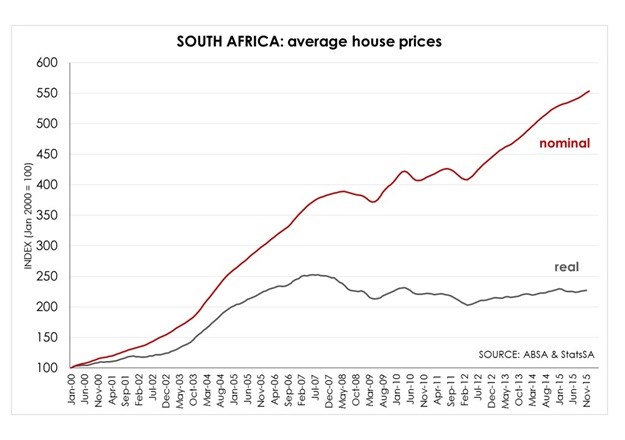
Top stories




Marketing & MediaWarner Bros. was “nice to have” but not at any price, says Netflix
Karabo Ledwaba 1 day


More news

Logistics & Transport
Maersk reroutes sailings around Africa amid Red Sea constraints
















This increased caution is not surprising as disposable incomes remain under pressure, against a backdrop of rising inflation, further eroded by above-inflation increases in municipal rates and utility tariffs and as economic growth remains stunted.
The decision to hike the repo rate at this first meeting of the year was widely forecast as the recent rand weakness and concerns about the deterioration in inflation expectations exerted pressure on the MPC to reinforce perceptions that it would take the necessary steps to contain inflation even though the economy is weak.
While doom and gloom merchants commentating on the property market abound, a more pragmatic approach presents a different picture.
Firstly, given the volatility being experienced in financial markets, exchange rates, stocks and commodities, many analysts are seeing property - bricks and mortar - as a sound investment and rand hedge. Property is globally recognised as a means of wealth creation and here in South Africa is increasingly sought after among the new generation of young, first-time buyers. For example, we are seeing that activity in the below R1m price range still seems to be limited mainly by a lack of supply, and not a lack of demand.
While many market commentators are suggesting that interest rates will rise by about 100-125bps during the course of this year (2016), even if these anticipated increases occur, interest rates will remain low by historical standards and, with inflation heading upward, the increase in real rates (taking inflation into account) will be more muted than the hikes in nominal interest rates suggest. One must bear in mind that at the height of the global economic crisis the prime rate in South Africa reached 15.5%.
We do not anticipate seeing interest rates raised by several percentage points as we have in the past. In addition, in general, households have reduced their debt in the wake of the 2008 crisis so will not necessarily be as sensitive to higher interest rates as they were at the time of the global financial crisis. Furthermore, those employed in the public sector - the largest source of employment in South Africa - continue to receive above inflation salary increases, with areas such as Pretoria, for example, benefiting from public sector house buyers. Interestingly, other nodes such as the Cape Town metro and booming KwaZulu-Natal North Coast corridor continue to reflect high demand, with sales performance bucking national trends.
Although house price growth has slowed, nominal prices are currently at record highs of approximately R1.386m (source: Absa) while the real price (i.e. taking inflation into account) is just 10% off its record highs pre-crisis of August 2007. This follows because in South Africa we have a rapidly growing, young population for whom there is insufficient housing, so there is little reason to expect house prices to fall outright. In addition, while continuing to apply stringent lending criteria, the banks have over the past year shown a tendency to compete for mortgage business, a trend which is expected to continue.

Looking internationally, in 2008 world GDP was negative, compared with this year's growth forecast of 3.4%, so the global backdrop is not as dire. In 2009, South Africa's GDP was -1.5%, but in 2016 we are looking at some +0.7% to 1% which is still positive. And while our inflation rate in Q3 in 2008 reached 13.2%, this year (2016) it is likely to be between 6-7%, in other words half that level."
